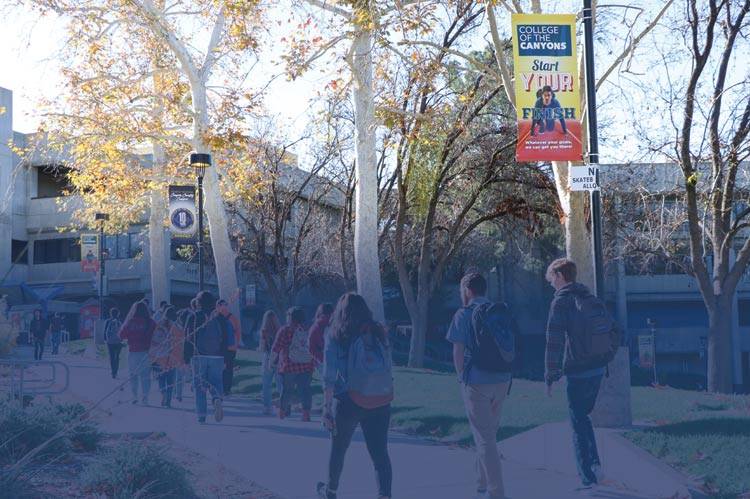Crime and Intelligence Analysis

Crime and Intelligence Analysis Certificate of Completion
The Crime & Intelligence Analysis Certificate (CIAC) program provides practical instruction in crime analysis, criminal investigative analysis, organized crime intelligence analysis, law enforcement research, and statistical methods. The included courses will focus on (1) the analysis of the Part I and Part II crime trends most commonly encountered by patrol officers and investigators such as murder, aggravated assault, rape, robbery, burglary, and theft, and (2) crimes investigated by intelligence officers such as criminal networks, organized crime groups, narcotics, gangs, smuggling, trafficking, pirated goods, money laundering, and other illicit rings. The CIAC program is designed with the community and future in mind. Incorporating social justice concerns and utilizing evidence-based theories, this program directly correlates to the current push for implicit bias training in the criminal justice field. Crime analysis is one of the fastest growing sectors of law enforcement in the world, and investigative profiling is the only empirically based investigative method accepted internationally. Combined, these two fields represent the future of the criminal justice system. Upon completion of the Certificate in Crime & Intelligence Analysis program, graduates will receive a Certificate from College of the Canyons and be better prepared for entry level positions as crime and/or intelligence analysts.
- NC.CIAC 101 INTRODUCTION TO CRIME AND INTELLIGENCE ANALYSIS: 8.00 hours Introduces the fundamentals of crime and intelligence analysis, with an emphasis on the growing career opportunities within law enforcement and police operations.
- NC.CIAC 102 INTELLIGENCE ANALYSIS: 24.00 hours Identify techniques used in analyzing criminal activities. An emphasis will be placed on identifying and differentiating between crime patterns, series, and trends, then using the data to locate, evaluate, and forecast future crime trends.Identify techniques used in analyzing criminal activities. An emphasis will be placed on identifying and differentiating between crime patterns, series, and trends, then using the data to locate, evaluate, and forecast future crime trends.
- NC.CIAC 103 COMPUTER APPLICATIONS FOR CRIME AND INTELLIGENCE ANALYSIS: 32.00 hours Utilizing common software, recognize how to analyze large amounts of data, identify patterns, and draw conclusions relating to crime, telephone, and financial records. An emphasis will be placed on Excel functions including pivot tables, conditional formatting, concatenation and parsing, charts and graphs, and VLookup. Creating presentation using current industrystandard software to create association charts will also be covered.
- NC.CIAC 104 FINANCIAL ANALYSIS: 20.00 hours Introduces the acquisition, examination, and analysis of financial records, identification of fraud, and recognition
of money laundering activities. Managing, classifying, and analyzing large data sets to identify financial evidence will also be covered. - NC.CIAC 105 DARK WEB AND SOCIAL MEDIA FOR CRIME ANALYSIS: 28.00 hours Introduces various tools for discovering information about people online. An emphasis will be placed on the dark web, social media, and other online sites for crime analysis.
- NC.CIAC 106 CRIME MAPPING AND SPATIAL ANALYSIS: 16.00 hours Introduces the day-to-day work of a crime analyst by introducing Geographic Information Systems (GIS). Addresses how maps and spatial analysis are used. Software that is standard in the industry will also be covered.
- NC.CIAC 107 LAW ENFORCEMENT RESEARCH AND STATISTICAL METHODS: 32.00 hours Introduces the basic research and statistical procedures used in crime analysis including becoming familiar with the concepts involved in research design, content analysis, sampling, survey techniques, and statistical methods. Learn how to conduct research and author conclusions using commonly accepted research standards.
- NC.CIAC 108 CRIMINAL BEHAVIOR AND EMPIRICAL PROFILING: 32.00 hours Examines issues relating to the development and evaluation of offender profiling as an applied method for use in police investigations. Outlines the main psychological principles of offender profiling including classification of criminal behavior and behavioral change and consistency. An emphasis will be placed on classifying crime scene behaviors, linking behavioral types to offender characteristics, and linking serial offenses.
- NC.CIAC 109 CIAC CAPSTONE: ANALYST FINAL REPORTING AND PRESENTATION: 16.00 hours Develops crime and intelligence skills learned throughout the program to prepare a presentation of a final analysis product.
- NC.CIAC 110 CIAC CAPSTONE: EXAM PREPARATION: 16.00 hours Introduces the International Association of Crime Analysts (IACA), Law Enforcement Analysis Foundation (LEAF) examination, and prepares for a successful outcome for certification as an analyst under IACA.

 My Canyons
My Canyons  Canvas
Canvas 

